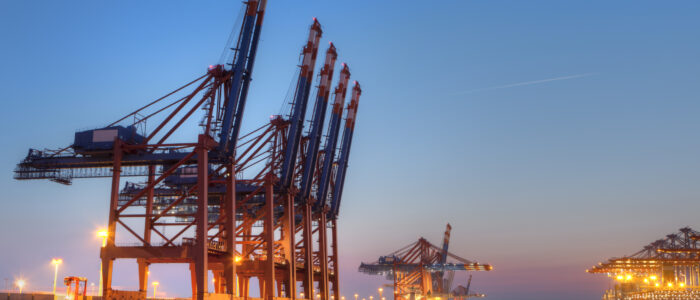After ten consecutive months of record-breaking numbers, the port declares that the fiscal year of 2021 saw 3.2 million twenty-foot-equivalent units, a 16.8% increase over 2020. Early on it was a grave concern that the lingering impact of the pandemic around the world would be massive disruption and issues for ports especially. Record import levels in the United States crashed against a lacking infrastructure for rail and truck movements that quickly exhausted warehouse space on the west coast. East coast ports also experienced congestion and overwhelming numbers, as evident by numbers released by Norfolk, a port that was luckily upgraded significantly in the years leading up to 2019 – an example of perfect timing if ever there was one.
“The colleagues and partners of The Port of Virginia rose to the challenge. For much of the fiscal year, we were handling record volumes under COVID-restricted conditions, and we did so safely, swiftly, and sustainably. We consistently handled record-breaking volumes at industry-leading performance levels.”
Stephen A. Edwards, the Port of Norflk’s CEO and Executive Director.
It also deserves to be mentioned, that this year’s peak season had not even occurred before the FY2021 numbers were calculated. As we haven’t quite moved into the peak season as of the publishing of this blog, we’re expecting the next year of numbers to be even more explosive when the accumulation of peak, holiday, and consistent record-setting levels are maintained at least through 2023.
Despite the good news for our home port, it’s rough on the ocean freight side these days and those issues plague the other modalities. Air cargo capacity is tight with rates steadily climbing and retrieval of cargo slower than ever before. Rail and truck delays are crushing the forwarders who are still lucky enough to get equipment and once again we’re looking at pandemic outbreaks that will cause delays with vessels leaving China. The domino effect will likely cause further disruption on the supply chain as we work to alleviate these problems.
We at Nelson International are working diligently every day to continue serving our clients who are burdened by cargo issues with their ocean freight. Careful and creative planning along with advance notice and flexibility are the best way to keep ahead of the disruption, but despite best-made plans, contingencies are important if we need to pivot and make alternative arrangements. If you want to hear the ways we can help, contact your representative today.


Comments are closed.